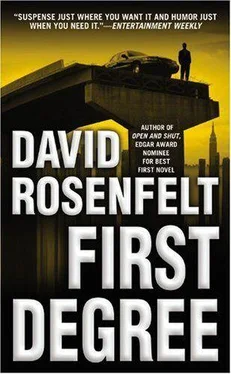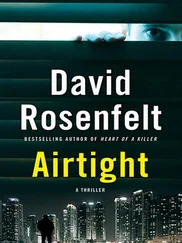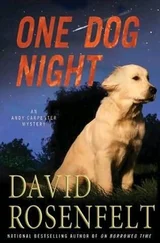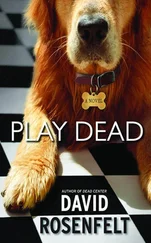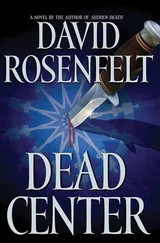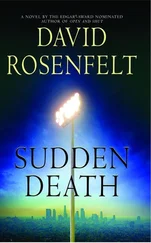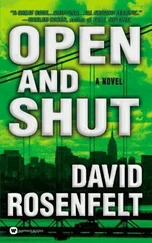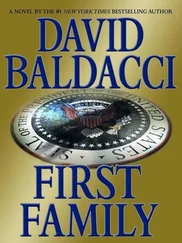David Rosenfelt - First degree
Здесь есть возможность читать онлайн «David Rosenfelt - First degree» весь текст электронной книги совершенно бесплатно (целиком полную версию без сокращений). В некоторых случаях можно слушать аудио, скачать через торрент в формате fb2 и присутствует краткое содержание. Жанр: Детективная фантастика, на английском языке. Описание произведения, (предисловие) а так же отзывы посетителей доступны на портале библиотеки ЛибКат.
- Название:First degree
- Автор:
- Жанр:
- Год:неизвестен
- ISBN:нет данных
- Рейтинг книги:4 / 5. Голосов: 1
-
Избранное:Добавить в избранное
- Отзывы:
-
Ваша оценка:
- 80
- 1
- 2
- 3
- 4
- 5
First degree: краткое содержание, описание и аннотация
Предлагаем к чтению аннотацию, описание, краткое содержание или предисловие (зависит от того, что написал сам автор книги «First degree»). Если вы не нашли необходимую информацию о книге — напишите в комментариях, мы постараемся отыскать её.
First degree — читать онлайн бесплатно полную книгу (весь текст) целиком
Ниже представлен текст книги, разбитый по страницам. Система сохранения места последней прочитанной страницы, позволяет с удобством читать онлайн бесплатно книгу «First degree», без необходимости каждый раз заново искать на чём Вы остановились. Поставьте закладку, и сможете в любой момент перейти на страницу, на которой закончили чтение.
Интервал:
Закладка:
"In the process, an FBI agent has been shown to have lied. I won't dispute that; we all saw it before our eyes. But what does that mean to this case? No evidence was presented implicating him in the murder you are here to judge. In fact, as a federal officer, he had nothing to do with this case whatsoever; it was handled by the Paterson police. Nor did anyone come up here and say he had a grudge against this defendant. Why would he have framed her? It doesn't make any sense.
"Yes, Agent Hobbs lied, perhaps to hide his embarrassment at his relationship with criminals and a cop gone bad. It's interesting, it's troublesome, and it will be investigated, but it has nothing--I repeat nothing whatsoever--to do with the murder of Alex Dorsey.
"The state has proved its case, proved it well beyond a reasonable doubt, and I ask you to return a verdict of guilty against Laurie Collins for the murder of Lieutenant Alex Dorsey."
I get up to give our closing argument aware that we have a big hill to climb. In a perfect world, a lawyer wants to be able to recap and summarize the compelling evidence he has presented during the course of the trial. This case being tried in a less-than-perfect world, I have the task of explaining what the hell our evidence has to do with it.
"Ladies and gentlemen, there is absolutely nothing in Laurie Collins's background, not a shred, which would indicate she could possibly be capable of a brutal act such as the murder of Alex Dorsey. On the contrary, her entire life has been devoted to furthering the public good and the cause of justice.
"The prosecutor says she did it, and points to certain items of evidence. I say she was framed, and that the same evidence was planted to further that end.
"But Mr. Campbell completely rejects the idea of a frame-up moments after he tells you that the reason he first charged Oscar Garcia with the crime is because he was framed! Mr. Garcia could be framed, but Ms. Collins could not? Why doesn't he explain that?
"And let's look at what he does say about it. He says that Ms. Collins framed Garcia to avenge one of these grudges that he thinks she carries around. Yet an FBI agent, Cindy Spodek, testified that she made the call accusing Garcia. Ms. Collins had nothing to do with it. Mr. Campbell was wrong about that, as he has been wrong about so much in this case.
"Which brings me to Special Agent Hobbs. Even Mr. Campbell admits Hobbs perjured himself. Now, I don't know exactly what Mr. Hobbs did, or why he did it, but I'm going to give you a theory. It may be right, or it may be wrong, or the truth may be somewhere in the middle.
"I think the evidence shows that Hobbs led a squad, much of the same squad he led in the military. I think they got into positions where they could abuse the system and commit crimes, and Hobbs was in a position to protect them and to take a healthy cut of their profits.
"And he did protect Dorsey, but it got to a point where he couldn't protect him anymore. Dorsey didn't want to go to prison, and he threatened Hobbs with exposure. Dorsey may well have intended to fake his own death, but that wasn't good enough for Hobbs, and he either killed him or had Cahill kill him. And when Murdoch was going to talk to me, Hobbs had him killed as well.
"Before killing Dorsey, he either tricked him or forced him to tape a message to Ms. Collins, which he played in a phone call to her, making us think Dorsey was alive. Because as the actual murderer trying to deflect attention from himself, Hobbs had a very strong interest in Ms. Collins getting convicted.
"Now, as I've said, this is just a theory, though I believe it is plausible given the facts before you. Don't you have to admit it's possible? I believe that you do. Can you say beyond a reasonable doubt that I'm wrong? I don't think so.
"One of the many unusual aspects of this case is the fact that the lawyer for the defendant was a key witness in the defense. I sat up there and told you that Roger Cahill confessed the murder to me and told me about the bloody clothing behind the stadium, clothing he said was his own. I also told you that I sent Ms. Collins out there to retrieve the clothing.
"If I was telling the truth, Ms. Collins is innocent. It's as simple as that. You may or may not believe me, but can you say beyond a reasonable doubt I was lying? I don't think so. And if you can't, then you must vote to acquit.
"I know Laurie Collins very well, probably better than I know anyone in the world. She could no more commit a murder like this than she could get up and fly out the window.
"A murder of anyone, no matter what their actions in life, is a tragedy. Please don't compound that tragedy by turning Ms. Collins into another victim. She is innocent, and she has been put through hell. I ask you to do what is right and give Laurie Collins her life back."
As I turn and walk back toward Laurie at the defense table, I experience a totally selfish moment. I realize that the life I have been fighting for as much as Laurie's is my own.
I simply cannot envision living my life while Laurie wastes away in prison. It would be an incomprehensibly horrible existence, and the knowledge that twelve strangers can turn it into a reality bores a panic-filled hole in my stomach.
Kevin and Laurie shake my hand and whisper that I was wonderful, but the jury sits impassive, not looking at me, or Laurie, or anyone else. I want to go over and shake them until they understand who the good guys are. And I want to memorize their faces so that if they convict the woman I love for murder, I can hunt each one of them down, cut off their ugly heads, and set their stinking bodies on fire.
Hatchet reads them his version of the law, which when boiled down from its one-hour length, basically says, "If you think she's guilty beyond a reasonable doubt, vote guilty." He sends them off to deliberate, though they inform him that since it's late, they're going to get started in the morning.
Kevin comes over again tonight, basically out of force of habit, since there's nothing else we can do. I'm going to be hard-pressed to stick to my usual style of waiting for a verdict, which is to be totally alone (except for Tara), totally obnoxious to anyone who interrupts that solitude, and totally superstitious.
I can't be alone, at least not in my house, since Laurie is confined there for the duration. I don't want to be obnoxious, since she is no doubt going through a greater agony than I am. The only thing I can be is superstitious, so I'm sure I will do that with a vengeance.
I know we shouldn't, but we are physically unable to avoid watching news coverage of the verdict watch. Some commentators give us a decent chance, but most feel that if the jurors follow a strict interpretation of the law, we'll probably lose. All agree that if not for the Hobbs revelations, we'd be dead in the water.
The area of most agreement is that the longer it takes to reach a verdict, the better off we are. If the jury rejects our theories about Hobbs as irrelevant, they'll vote quickly to convict. If they're willing to accept them, or at least examine them, it will take considerably longer. Of course, this "longer the better" theory does not take into account the likelihood that we will soon all have strokes and die from stress waiting for the jury to come back.
We're eating breakfast at nine A.M. when Laurie and I make eye contact and realize that at that very moment, the jury is meeting to begin the process of deciding her fate. It's enough to make me choke on my pancakes.
The doorbell rings and we get a FedEx delivery. It's from the opposing law firm in the Willie Miller suit, and inside is a cashier's check for more than eleven million dollars. Since two hundred thousand dollars of it is Edna's, she is more than happy to take it to the bank and deposit it.
Читать дальшеИнтервал:
Закладка:
Похожие книги на «First degree»
Представляем Вашему вниманию похожие книги на «First degree» списком для выбора. Мы отобрали схожую по названию и смыслу литературу в надежде предоставить читателям больше вариантов отыскать новые, интересные, ещё непрочитанные произведения.
Обсуждение, отзывы о книге «First degree» и просто собственные мнения читателей. Оставьте ваши комментарии, напишите, что Вы думаете о произведении, его смысле или главных героях. Укажите что конкретно понравилось, а что нет, и почему Вы так считаете.
